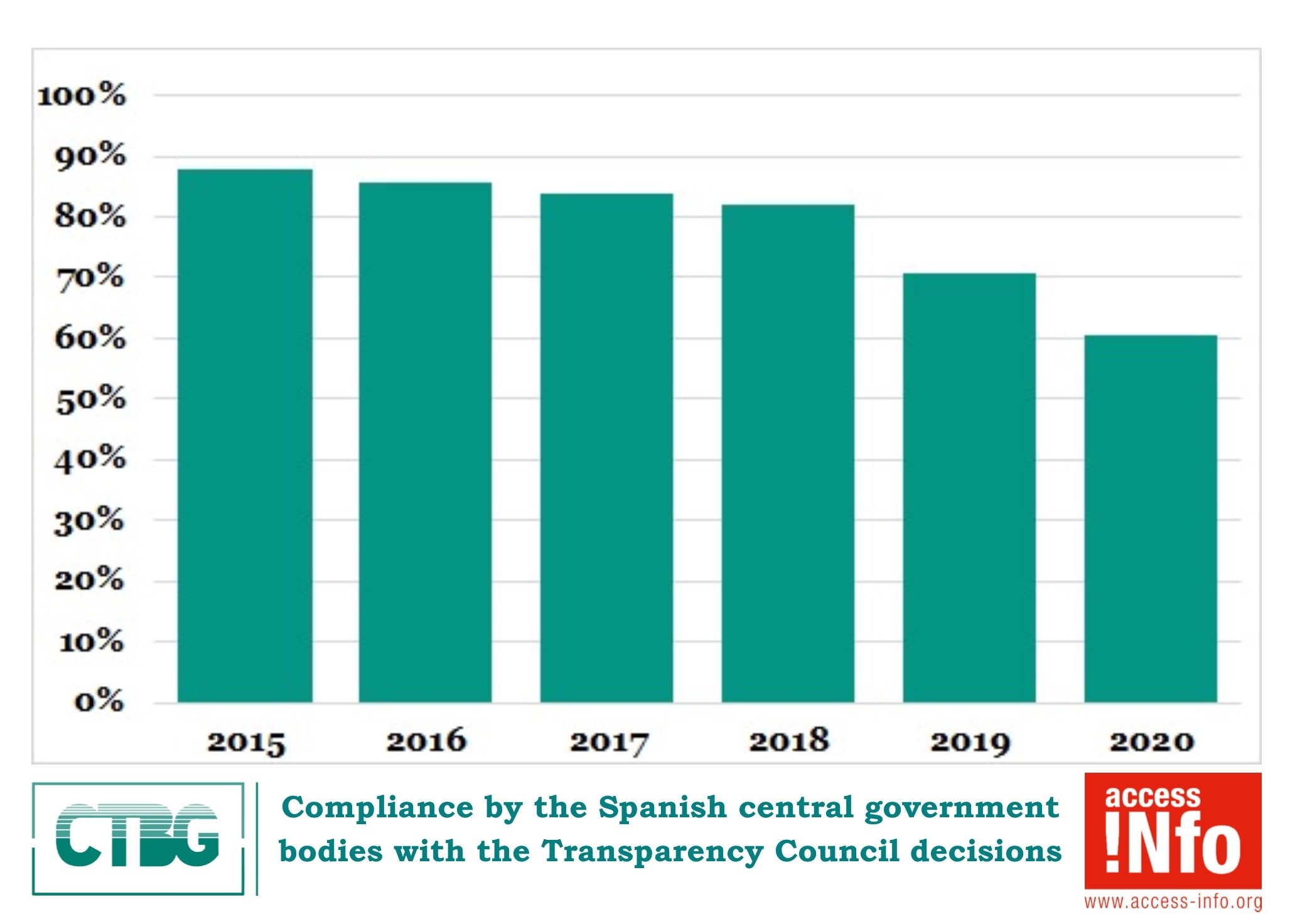Madrid, 26 January 2021 – Access Info Europe is seriously concerned about recent changes to key personnel in Spain’s Transparency Council, which raise the spectre of an attack on the independence of the Council, and points to the urgent need to reform the process by which its directors are appointed.
In particular, the Deputy Director for Appeals, Esperanza Zambrano, one of the people in Spain with the greatest knowledge of the Transparency law, having worked on the law from its inception in 2012, and with six years of experience handling appeals at the Council, has been replaced by someone with no track record of working on the fundamental human right of access to information. In recent days rumours have abounded in the press that other replacements will follow.
“Just at the time when the Spanish government has committed to an ambitious four-year action plan on open government as part of its membership of the Open Government Partnership, it’s very disturbing to see the independence and expertise of the Transparency Council being undermined,” said Helen Darbishire, Executive Director of Access Info.
“Esperanza Zambrano had gained the respect of the transparency community inside Spain and globally, in forums such as the Open Government Partnership, in Europe and Latin America, and as an expert speaker in events held in 2020 by organisations such as the OSCE. Even when, as civil society organisations, we did not agree with the decisions of the Council – as they did not always decide in favour of release of documents – they were fair, balanced, and well argued in line with international standards on the right to information,” added Darbishire.
These changes come shortly after a new President of the Council, José Luis Rodríguez Álvarez was appointed on 20 October 2020. A former head of Spain’s data protection agency, Rodríguez Álvarez has some relevant experience but nevertheless concerns were raised by civil society at the time of his appointment that he is overly close to Spain’s socialist party, which is currently in government.
Access Info expressed concern that the way in which the new President was appointed was not in line with international best practices, as the nomination was made with no open list of candidates, and no public hearings. Parliamentary approval was more of a check box exercise than a full consideration and debate.
In recent years there has been a clear trend to non-compliance with the Council’s decisions by central government bodies, falling from 88% compliance in 2015, to just 60% of decisions complied with in 2020. Furthermore, the government has increasingly launched litigation against the decisions of the Council, with 28 law suits in 2020.
Access Info is calling for an urgent reform of Spain’s 2013 Transparency Law in order to guarantee true independence of the Transparency Council. Other recommendations include making its decisions binding and providing it with the powers of inspection and sanction.

